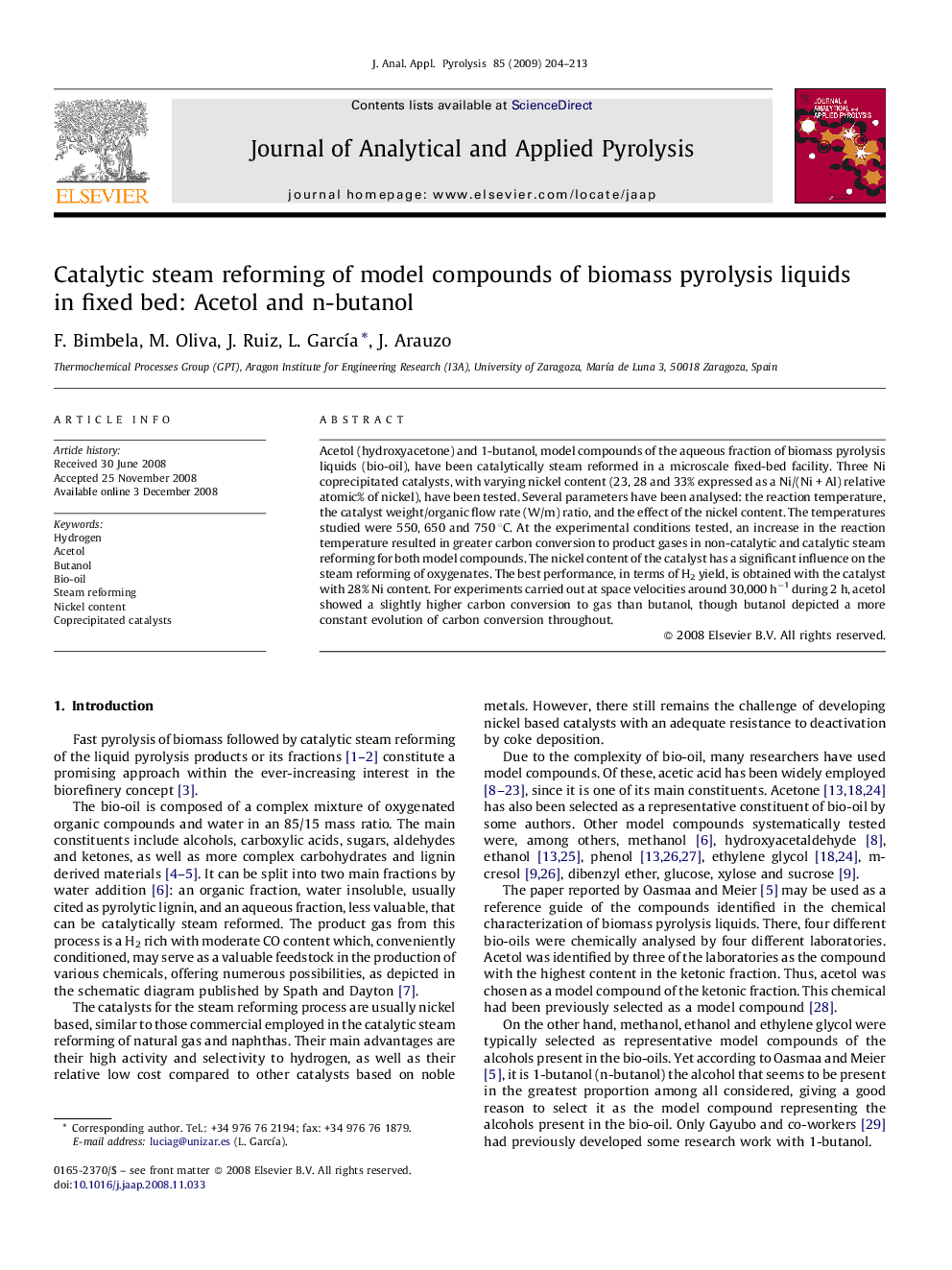| Article ID | Journal | Published Year | Pages | File Type |
|---|---|---|---|---|
| 1197513 | Journal of Analytical and Applied Pyrolysis | 2009 | 10 Pages |
Acetol (hydroxyacetone) and 1-butanol, model compounds of the aqueous fraction of biomass pyrolysis liquids (bio-oil), have been catalytically steam reformed in a microscale fixed-bed facility. Three Ni coprecipitated catalysts, with varying nickel content (23, 28 and 33% expressed as a Ni/(Ni + Al) relative atomic% of nickel), have been tested. Several parameters have been analysed: the reaction temperature, the catalyst weight/organic flow rate (W/m) ratio, and the effect of the nickel content. The temperatures studied were 550, 650 and 750 °C. At the experimental conditions tested, an increase in the reaction temperature resulted in greater carbon conversion to product gases in non-catalytic and catalytic steam reforming for both model compounds. The nickel content of the catalyst has a significant influence on the steam reforming of oxygenates. The best performance, in terms of H2 yield, is obtained with the catalyst with 28% Ni content. For experiments carried out at space velocities around 30,000 h−1 during 2 h, acetol showed a slightly higher carbon conversion to gas than butanol, though butanol depicted a more constant evolution of carbon conversion throughout.
